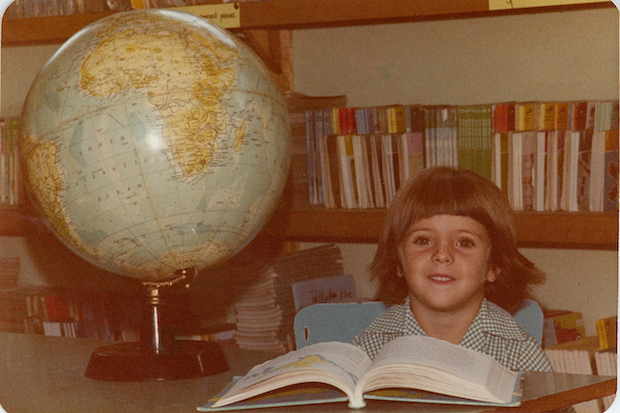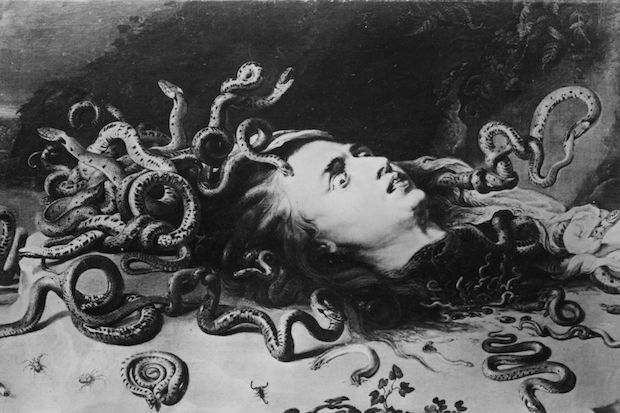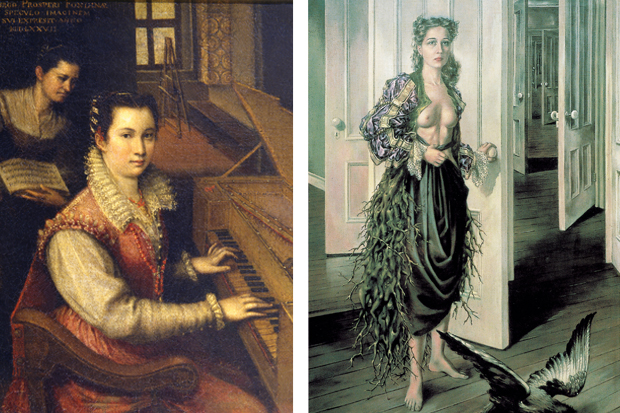Eileen is an accomplished, disturbing and creepily funny first novel by Ottessa Moshfegh, the latest darling of the Paris Review, which has published her stories and given her a prize. It recalls, half a century later, a week in the life of Eileen Dunlop, leading up to Christmas 1964.
Her mother, whom she loathed, has died some years ago, and at the age of 24 Eileen is living in a dreary New England town she calls ‘X-ville’ with her father. He’s a demented, gin-sodden retired cop whom she also loathes, and whom she is supposedly looking after, though her care is limited to shouting at him, maintaining his gin supply and hiding his shoes to prevent him from terrorising X-ville in his pursuit of imaginary ‘hoodlums’.
She works as a secretary in the local boys’ prison, where she drinks sweet vermouth from her locker, devises absurd questions for a ‘state questionnaire’ issued to visiting mothers (‘Do you believe there is life on Mars?’) and lusts after a guard called Randy, spending ‘many hours watching his biceps flick and pump’ as he turns the pages of his comic book. In her spare time she shoplifts from the local drugstore, stalks Randy, and drinks more vermouth.
Beset by intimations of incest and child-abuse, Eileen is consumed by disgust at practically everything around her, though there is lyricism in her disgust — at the snotty tissues discarded by the visiting mothers, for example, ‘marked with lipstick like fat, dead, pink-tipped carnations’.
Still a virgin, ‘of course’, she is obsessed with her ‘poor nether regions’, and is ‘easily roused by the grosser habits of the human body — toilet business not least of all’; her bowel movements are ‘a whole other story’, and she does not hesitate to share it. When her disgust overwhelms her she has a ‘particular way’ of calming herself: ‘I found an empty room and gritted my teeth and pinched my nipples while kicking the air like a cancan dancer until I felt foolish and ashamed. That always did the trick.’
‘I wasn’t exactly a pleasant person,’ she admits, but ‘the loud, rabid inner circuitry’ of her mind is strangely compelling, and Moshfegh maintains the necessary element of sympathy, or at least pity, for her ‘straight-faced derangement’, and that reliably winning combination of searing self-knowledge and utter self-delusion.
On the fourth day of her week Eileen’s life is turned upside down by the arrival of Rebecca Saint John, who has been hired fresh from Harvard as the prison’s director of education. Beautiful, glamorous and classy, though evidently quite mad, Rebecca provokes in the lonely and ragingly dysmorphic Eileen a resentment which instantly turns into fevered worship. It’s obvious their relationship will lead to catastrophe.
Moshfegh’s control of tone and pace is masterly, her ventriloquism impeccable, and the period detail unobtrusively spot-on. I was occasionally reminded of Nabokov and Lena Dunham, among others, but her voice is her own, and immensely promising.
Got something to add? Join the discussion and comment below.
Get 10 issues for just $10
Subscribe to The Spectator Australia today for the next 10 magazine issues, plus full online access, for just $10.
Available from the Spectator Bookshop, £12.49. Tel: 08430 600
You might disagree with half of it, but you’ll enjoy reading all of it. Try your first month for free, then just $2 a week for the remainder of your first year.














Comments
Don't miss out
Join the conversation with other Spectator Australia readers. Subscribe to leave a comment.
SUBSCRIBEAlready a subscriber? Log in